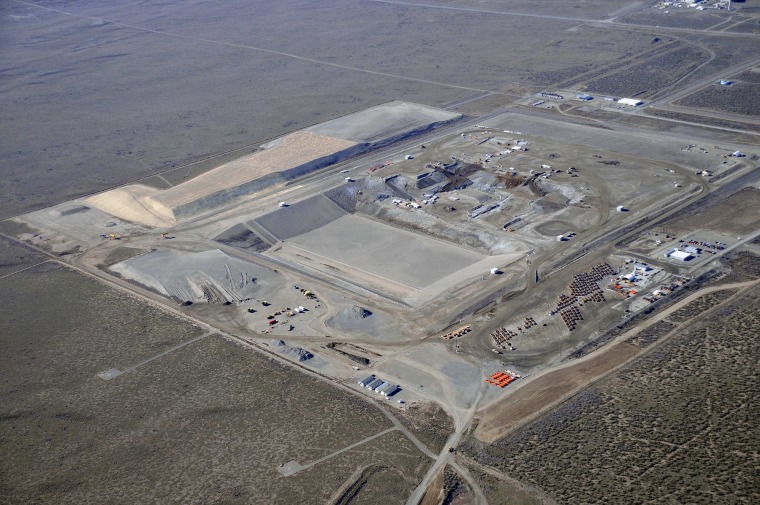The U.S. government is trying to find a location to store the country's excess mercury deposits, with seven states being considered. But the government is quickly finding out that very few people want the stuff.
The United States still exports surplus elemental mercury, the purest form, often to developing countries with less restrictive environmental regulations. Then-U.S. Sen. Barack Obama sponsored a bill last year to bar mercury exports beginning in 2013, and President George W. Bush signed it.
The bill also requires the Department of Energy to identify a safe, long-term storage site for up to 17,000 tons of mercury, which is so dense that it would fill less than half of an Olympic-size swimming pool. That includes stockpiles held by the federal government, as well as commercial supplies.
Officials are considering sites in seven states:
- Grand Junction, Colo.: Department of Energy's Grand Junction Disposal Site;
- Richland, Wash.: Department of Energy's Hanford Site;
- Idaho Falls, Idaho: Department of Energy's Idaho National Laboratory;
- Kansas City, Mo.: Department of Energy's Kansas City Plant;
- Aiken, S.C.: Department of Energy's Savannah River Site;
- Hawthorne, Nev.: Hawthorne Army Depot;
- Andrews, Texas: Waste Control Specialists.
Residents are swiftly voicing opposition because mercury is such a toxic substance.
Sometimes called "quicksilver," mercury is a dense, metallic element that occurs naturally in the environment and has been used in gold mining, manufacturing chlorine and caustic soda, batteries, thermometers and other uses. Its use has been in decline in this country since it was linked to health issues, including pulmonary and neural disorders.
Colo., Idaho governors oppose
In Colorado, the Energy Department is considering a site near Grand Junction where uranium tailings are stored. Residents fear mercury could contaminate tributaries that flow into the Colorado River, a water source for millions of people in the West.
Colorado Gov. Bill Ritter came out against the plan Thursday, saying he will convey his opposition about the proposal to the Department of Energy.
Idaho Gov. C.L. "Butch" Otter told a radio station that mercury storage there is "not gonna happen" and expressed dismay that he hadn't been notified Idaho National Laboratory was even being considered.
Officials in South Carolina say waste at the Savannah River site from the production of atomic weapons during World War II and the Cold War should be dealt with before more is added.
Nevada officials expressed "grave concerns" about storing the waste at the Hawthorne Army Depot, a 150,000-acre depot in a small, struggling desert town 130 miles south of Reno.
The Bannister Federal Complex near Kansas City is also being considered, but the Kansas City Council unanimously approved a resolution this month protesting the plan.
Best option in Texas?
Officials in Texas, the only site where a private, commercial landfill expressed interest in storing the waste, have taken no position on the proposal. Waste Control Specialists, based in Dallas, already stores PCBs and radioactive waste at its landfill near Andrews in West Texas.
The company has permits to receive mercury at the site, as long as they don't exceed their capacity, said Andrea Morrow, spokeswoman for the Texas Commission on Environmental Quality.
The federal government wants to work cooperatively with states to find a safe site, said Frank Marcinowski, the Energy Department's deputy assistant secretary for regulatory compliance.
A draft environmental impact statement is expected to be released for public comment in the fall.
"We are ordered to come up with a site," Marcinowski said. "We see this as an opportunity to help reduce the export and transportation of mercury."
